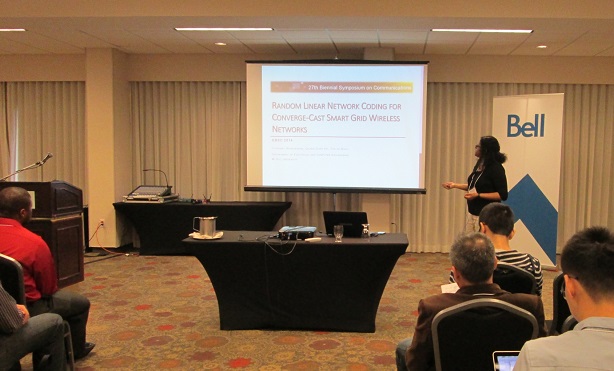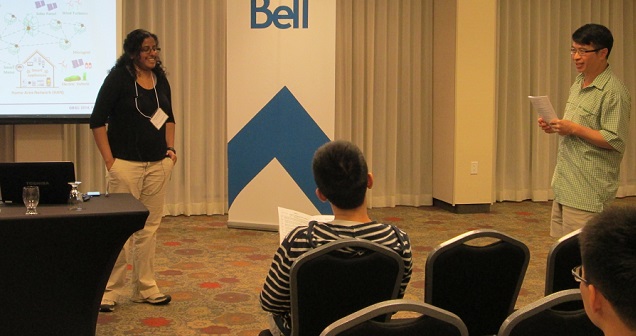News & Events

Project 3.2 presents at Communications Symposium
The Queen’s Biennial Symposium on Communications is a long-standing Canadian tradition that focuses on developing Canadian expertise in the fields of coding, information theory, telecommunications as well as signal processing. It connects Canadian and global leaders both in academia and industry and provides a platform for students’ development as tomorrow’s professionals.
At the 2014 conference held June 1-3, Gowdemy Rajalingham, a PhD student at McGill University working under NSMG-Net Theme 3, presented on Random Linear Network Coding for Converge-cast Smart Grid Wireless Networks. This is part of a preliminary study on the feasibility of networking coding to improve the data transmission robustness of microgrid communication networks, and part of the overall project goal to develop efficient transmission, information processing, and networking techniques and strategies suitable for a robust communications infrastructure that supports the integration of smart microgrids.
Gowdemy’s research determined that utilities and microgrid developers should use network coding that allows for partial decoding operations, when designing communication networks:
A microgrid Neighborhood Area Network (NAN) poses a communications challenge due to the bottlenecks associated with the converge-cast nature of uplink traffic. This can potentially be addressed through network coding. In this research, Random Linear Network Coding (RLNC) is considered in converge-cast scenarios while both network size and link reliability are varied. This preliminary study suggests that inter-session RLNC does achieve throughput enhancements but at the cost of higher network load. Additionally, performance drops sharply with low link reliabilities due to the lack of partial decoding. Therefore, for large converge-cast networks network coding that allows for partial decoding operations would be more beneficial.
Network partners interested in collaborating, building on or learning more about the research of Project 2.3 should contact the Project Leader.


